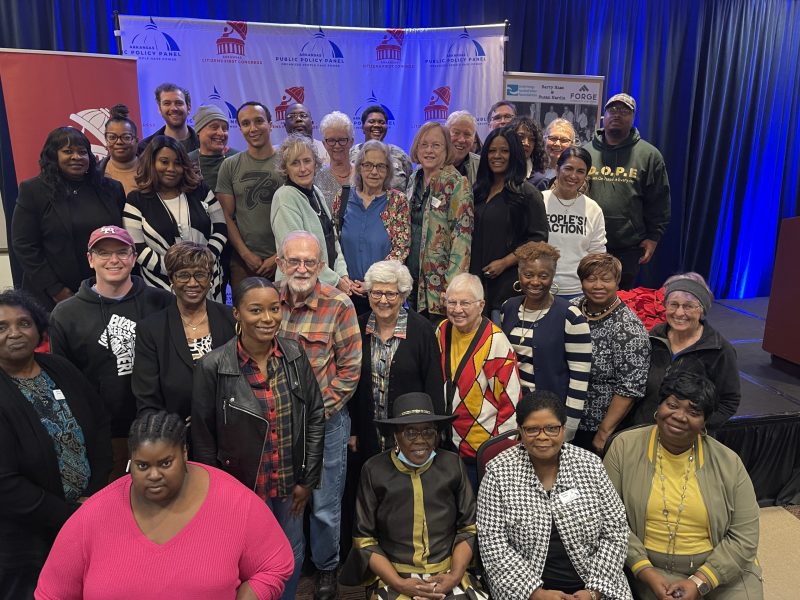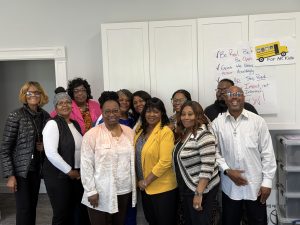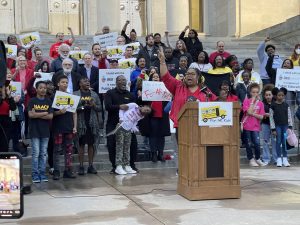
The Arkansas Public Policy Panel organizes residents and connects community groups in the fight for social and economic justice. The Panel was founded in 1963 by a multiracial, multi-faith coalition of mothers that advocated for the acceptance of school integration across Arkansas using personal testimonies of discrimination. More than sixty years later, the Panel has expanded to advocate across multiple issues — including education, redistricting, mental health and prison reform, clean water, energy efficiency, and housing — through political education, research, canvassing, and coalition building. The Panel also works with its sister organization, Arkansas Citizens First Congress, a statewide coalition of more than 60 organizations that uses a mock legislature model to align on and lobby for progressive policies, such as net-zero emissions, tax reform, tenant rights, divestment from Israel bonds, and an end to corporal punishment in schools, in front of the Arkansas General Assembly.

Members of the Arkansas Public Policy Panel. Photo: Janice El-Amin
The organization employs 11 staffers and works with thousands of volunteers. Though the Panel works with groups across the state, it has specific commitments in Southeast and Southwest Arkansas, which are home to some of the poorest and most rural communities in the state. The Panel trains community leaders and assists with organizational structure, engages school boards and city councils, and fights for quality-of-life changes such as new community centers and water towers. At the state level, one of the Panel’s most urgent priorities is safeguarding citizens’ rights to propose ballot initiatives, gather signatures and sign petitions. It is also working with the organization, For AR Kids, to support an amendment that would create free programs for pre-K education, after-school and summer activities, special education, and support for children living in poverty, in addition to minimum academic requirements and requiring both public and charter schools to adhere to the same rules.

Members of the Arkansas Public Policy Panel in front of the Arkansas Capitol steps. Photo: Janice El-Amin